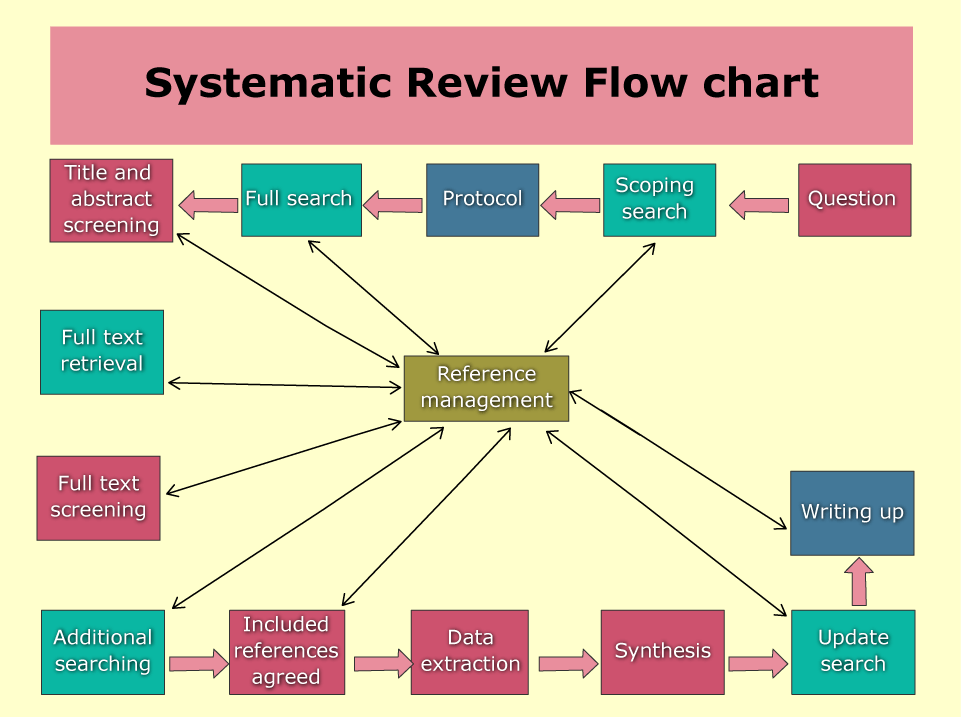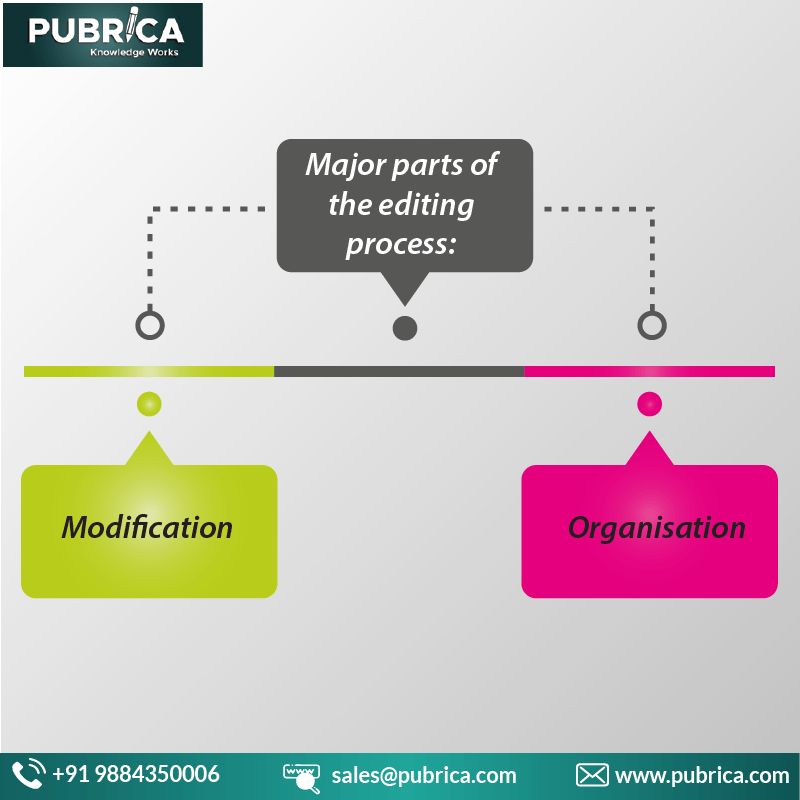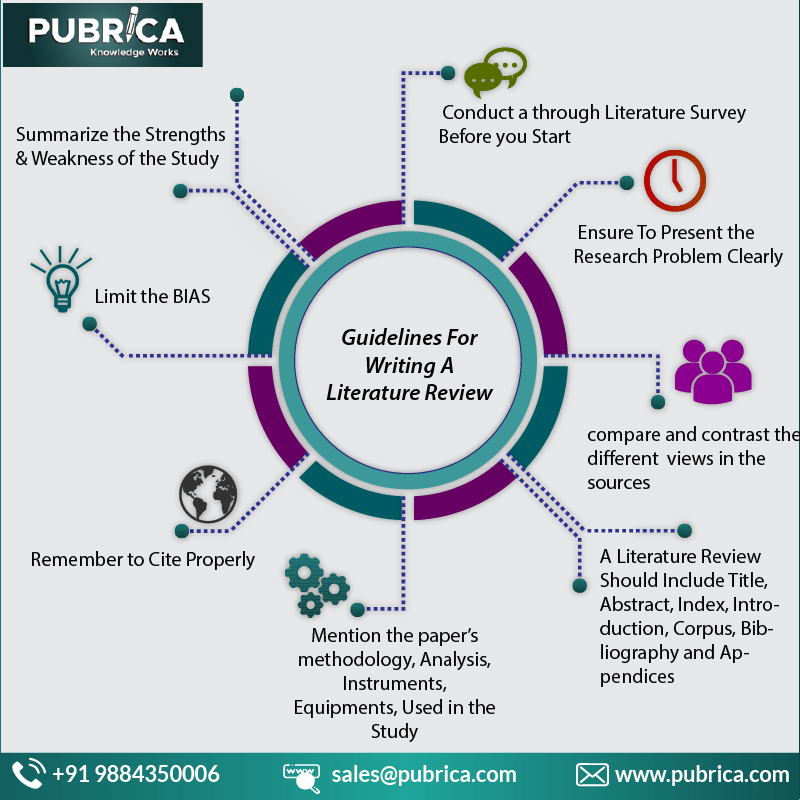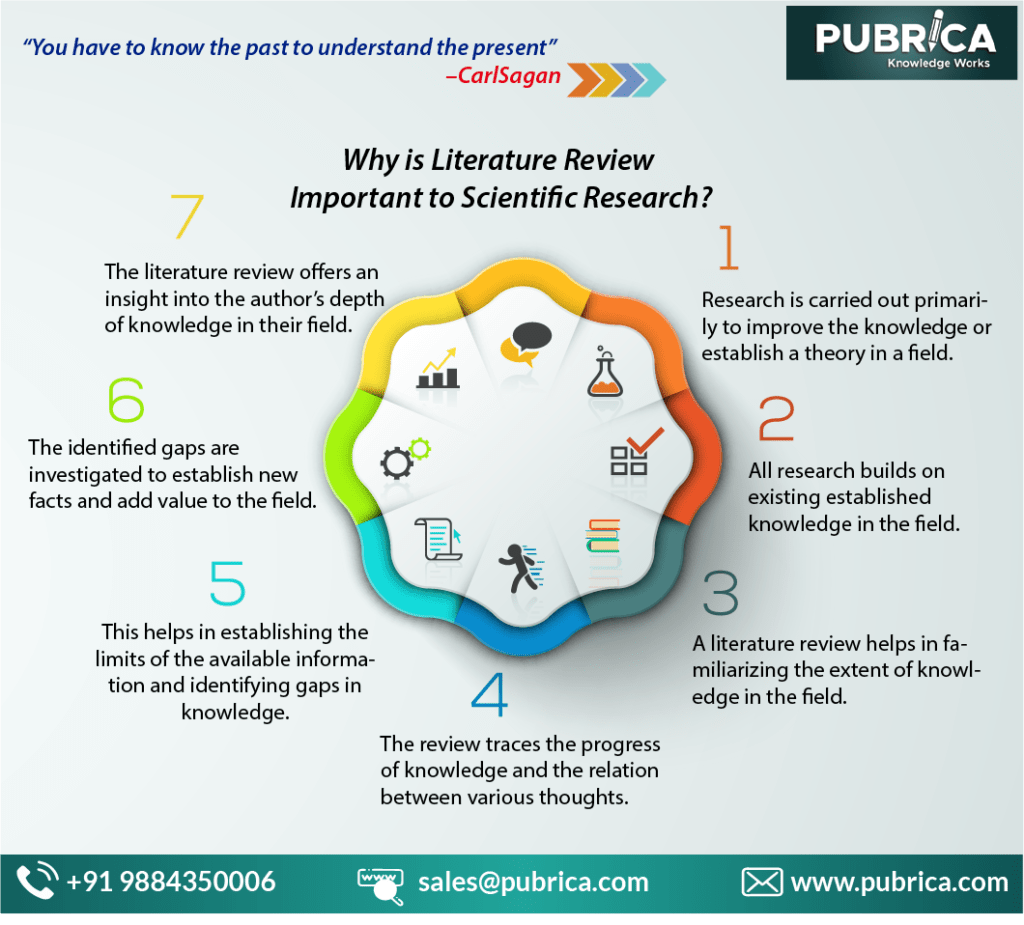
Can Meta-Analysis be Systematic Review?
April 23, 2019
Tips For How to Edit a Scientific Manuscript For Publication
May 25, 2019The Importance of Literature Review in Scientific Research Writing
In brief
Literature reviews are an important part of the scientific research process and communication. While systematic reviews have become the global standard for evidence synthesis, many literature reviews fall short of these expectations and may present biased or incorrect conclusions. In this post, we discussed common issues with Literature search services methods, provided examples for each, and offered practical solutions for mitigating them.
Introduction
All scientific research begins with a review of the literature. Every scientific research builds on previous knowledge as a systematic investigation to spread new conclusions and establish facts. To conduct research that adds value to the field, precise awareness of the level of wisdom on a subject is required. There is no formal literature review definition for a research paper in medical education; thus, a literature review can take many forms. These forms will differ in methodology, rigor, and depth depending on the type of article, target journal, and specific topic. Several organizations, both broadly and specifically, have published guidelines for conducting an intensive literature search in preparation for formal systematic reviews (e.g., PRISMA)

A scientific literature review is a survey of scientific books, scholarly articles, and any other Clinical Literature Review Services relevant to a specific issue, area of study, or theory that provides a description, summary, and critical evaluation of a concept, school of thought, or ideas about the research question under investigation. Furthermore, the literature review familiarizes the author with the extensiveness of their knowledge in their field. When presented as part of the paper, it establishes the author’s depth of understanding and knowledge of the subject to the readers.
The literature in a field that is scientifically significant includes, among other things, previous studies in the field, well-known schools of thought, scholarly articles, and scientific journals. Every field uses a different style of literature review. In the hard sciences, the literature consists primarily of factual information, and the review may be as simple as a summary of the important sources. On the other hand, the survey of soft sciences provides an overview and synthesis of many schools of thought and how they are connected. A summary or an outline is a succinct account of all informational highlights from essential sources, whereas synthesis is the restructuring or rearrangement of the material to guide the dissertation’s plan of exploring the research subject.
The following are some of the ways a literature review adds value and legitimacy to a study:
- Literature review writing services allow for the interpretation of old literature in graceful new developments in the field; this aids in establishing knowledge consistency and the relevance of older materials.
- The evolution of knowledge in the subject is traced while studying the literature, and how the dialectics of inconsistencies between distinct concepts within the field helped establish facts is discovered.
- This helps to assess the effect of new knowledge in the area. The literature is largely evaluated to discover knowledge gaps in the topic, and these gaps are further probed throughout the study to develop new facts or hypotheses that offer value to the area.
- The idea of performing a rigorous and methodical investigation involves a critical analysis of current information, which necessitates a literature review.
- The literature review help also aids in determining the current study’s place in the field’s schema.

We highlight 8 common issues with traditional literature review methods and provide examples from the field of scientific research for each.
| Problem | Solution |
| Lack of relevance – a lack of stakeholder engagement can result in a review of little practical use to decision-makers. | Stakeholders can be identified, mapped, and contacted without the need for large budgets for feedback and inclusion. Look into best-practice guidelines |
| Mission creep – reviews that do not publish their methods in advance may experience shifting goals and inclusion criteria. | Create and publish a detailed a priori protocol outlining planned searching, screening, data extraction, critical appraisal, and synthesis methods. Use existing organizations to your advantage (e.g., the Collaboration for Environmental Evidence). |
| A lack of transparency/replicability in the review techniques may imply that the review cannot be duplicated – a basic principle of the scientific process! | Be explicit, and use high-quality guidance and standards for review conduct and reporting (e.g., CEE Guidance) (PRISMA or ROSES) |
| Reviewers may wind up with the wrong evidence for the subject at hand due to selection bias (containing studies that are not typical of the evidence base) and a lack of comprehensiveness (an inadequate search approach). | Create a search strategy with an information specialist; test the search strategy (against a benchmark list); Use multiple bibliographic databases/languages/grey best literature review writing; publish search methods in advance in a peer-review protocol |
| The failure to test for evidence of publication bias and the exclusion of grey literature can lead to incorrect or misleading conclusions. | Include efforts to locate grey literature, such as ‘file-drawer’ (unpublished academic) research and organizational reports. Look for evidence of publication bias. |
| Traditional reviews usually lack sufficient critical assessment of included study validity, assuming all data as equally valid – we know some research is more reasonable than others, and the synthesis must consider this. | Before beginning the process in its entirety, carefully plan and trial a critical appraisal tool, learning from existing robust essential appraisal tools. |
| Inappropriate synthesis (for example, using vote-counting and incorrect statistics) can undo the initial systematic effort. Vote-counting (tallying studies based on statistical significance) ignores study validity and effect size magnitude. | Based on the data analysis, carefully select the synthesis method. Meta-analysis should never be used instead of vote counting, and formal narrative synthesis methods should be used to summarize and describe the evidence base. |
Conclusion
The literature review article helps verifies the study by giving information on its relevance and coherence to current knowledge and research methodologies. As a result, it establishes the author’s experience in the topic and offers legitimacy to carry forward the wisdom of the field through scientific and methodical techniques. While demonstrating the continuity of knowledge, the literature review also identifies areas that demand more inquiry and serves as a starting point for future research.
About Pubrica
The team of researchers and writers at Pubrica generates scientific and medical research papers that might be valuable tools for authors and practitioners. By alerting the reader to gaps in the selected study subject, Pubrica medical writers aid you in constructing and editing the introduction. Our experts know the sequence in which the hypothesis topic is followed by the broad subject, the issue, and the background.
References
- Lee K, Whelan JS, Tannery NH, Kanter SL, Peters AS. 50 years of publication in the field of medical education. Med Teach. 2013;35(7):591–598
- Maggio, Lauren A., Justin L. Sewell, and Anthony R. Artino Jr. “The literature review: A foundation for high-quality medical education research.” Journal of graduate medical education 8.3 (2016): 297-303.
Related Topic
Scientific Medical Writing Services
Scientific publication support services
Pubrica Meta-Analyses Services for Case Reports
Tags
Literature review and gap analysis | Scientific Editing Services | Scientific research writing service | Scientific communication services



